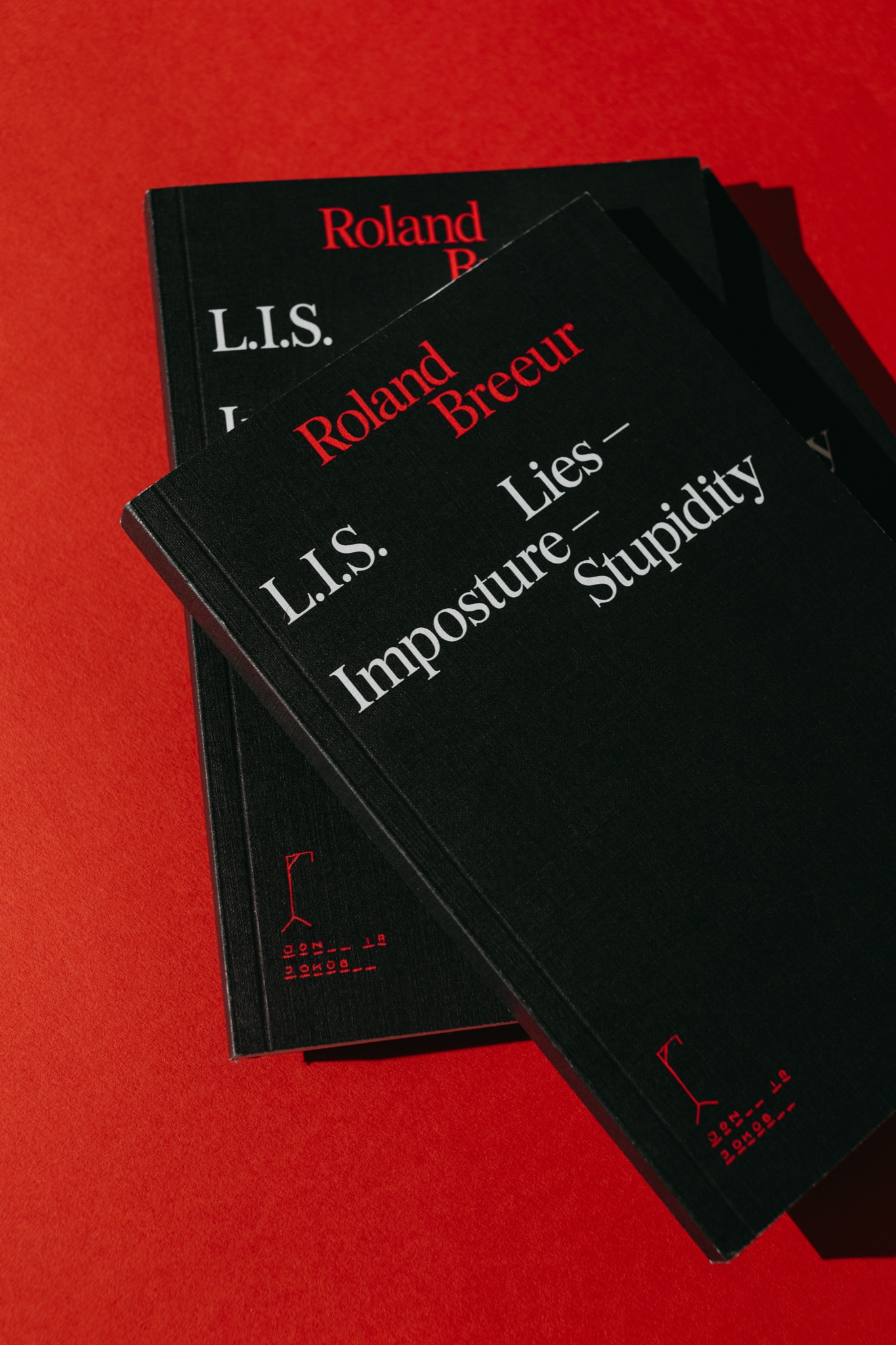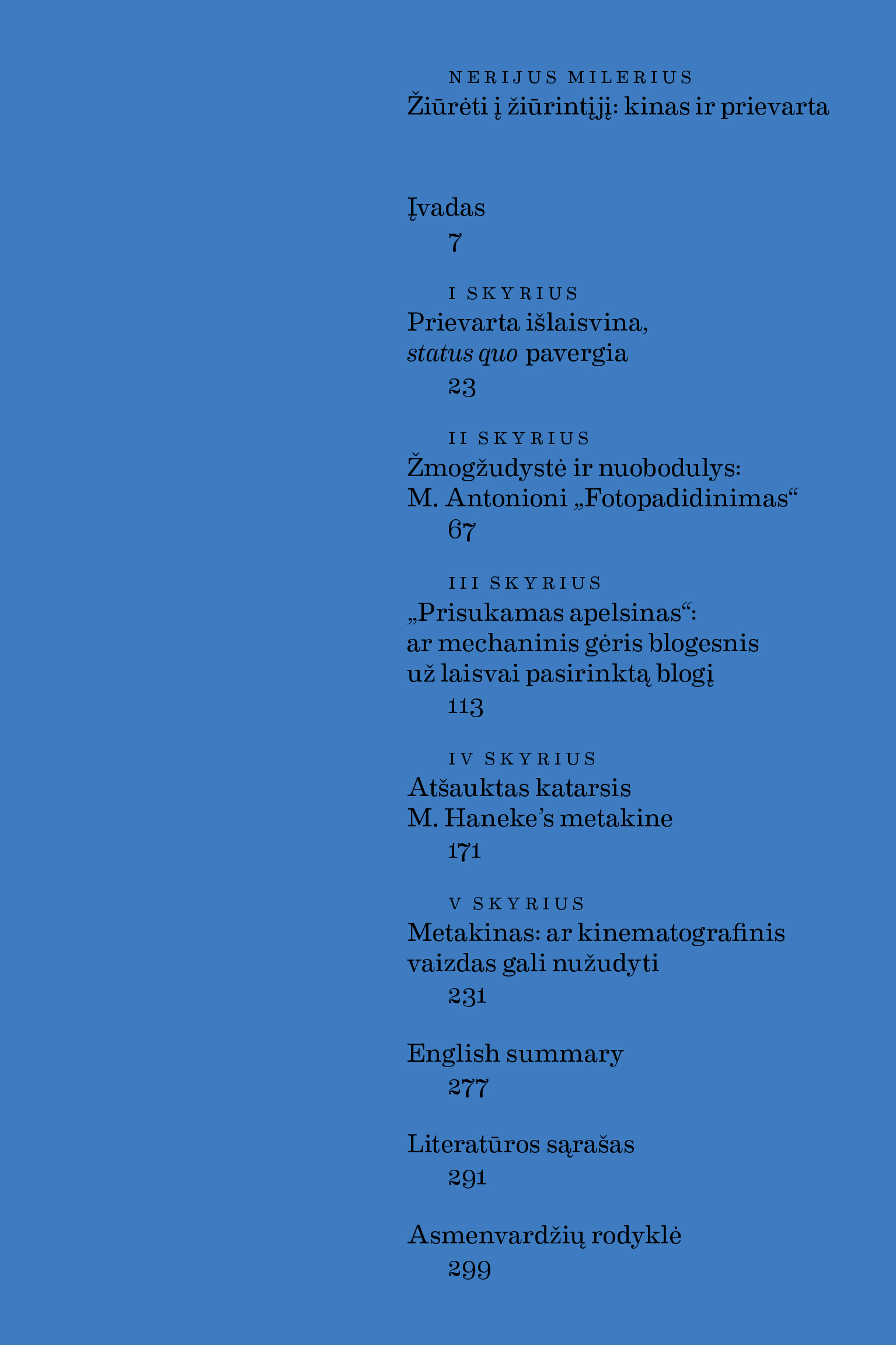Roland Breeur
L. I. S.: Lies — Imposture — Stupidity
What is new in our “era” is perhaps the fact that truth no longer has any authority. Today, the truth is not just weak but faint, pointless, insipid, futile; the truths that are proclaimed are superficial, contain clichés, and therefore cannot withstand the exuberant and pseudo-deepness of our contemporary liars. The danger of ‘post-truth’ lies not in the lie, then, but in the futile, weak, and shabby nature of the truth. And yes, those who proclaim futile truths are complicit in and therefore responsible for the proliferation of untruths.
Roland Breeur
L. I. S.: Lies — Imposture — Stupidity
Roland Breeur
L. I. S.: Lies — Imposture — Stupidity
L. I. S.: Lies – Imposture – Stupidity is one of our “pocket books” – small in size and, rich in content. This book – written by professor Roland Breeur and, published in 2019 – is a part of new philosophy series Margins, which attempts to combine both intellectual expression and the liberty of the essayistic format, therefore, the ideas – supported by plethora of real life cases, history facts, world of art, literature and additional philosophical notions invoked to make the concepts more comprehensible – are imagined vividly and grasped easily by the reader. L. I .S.: Lies – Imposture – Stupidity takes a 21st Century perspective on the history and the potential future of the truth – its meaning, its function and value.
Liko tik 6

Author
Roland Breeur
Roland Breeur (1966) is a philosopher, professor, author. R. Breeur wrote his PhD on Marcel Proust, studied Henri Bergson, Maurice Merleau-Ponty, Jean-Paul Sartre. Later on, he shifted his investigative focus to the origins of French Modernity from Descartes to Malenbranche.
Currently R. Breeur is teaching modern and contemporary French philosophy at KU Leuven, Belgium. His research topics are (self-)consciousness, memory, imagination, free will. He also researches Spinoza’s Ethics and tries to make more explicit and take seriously what Gilles Deleuze meant in classifying Spinoza as anti-Cartesian. Recently, Roland Breeur hosted a project called fakeMatters, where he explores the question of imposters, post-truth epoch, the relationship between truth and lies.
Historical, philosophical background
L. I. S.: Lies – Imposture – Stupidity draws its inspiration and heavily relies on both discourse of phenomenology and the philosophical concept of truth, keeping in mind wide range of its components: i. e. the antithesis – lie, the phenomenon of imposture, where all the ties with the truth are cut off, its degeneration in post-truth conditions, etc.
Truth is the central and the largest concept of philosophical discipline. We have a great deal of theories on the subject, including realism and anti-realism, the redundancy theory, the correspondence theory, pragmatism, recursive definition of truth, etc. The systemic approach to the phenomenon of truth can be traced back to ancient Greek philosophers such as Socrates, Plato and Aristotle although its manifestations coincides with the start of conceptual thinking itself.
Impact
Although the main “ingredients” of this essay are not new, quite the opposite, the structure and the end product are highly original. This book has a twofold impact on the contemporary research on truth: it combines images that have been ever relevant to the philosophical discourse, namely, the phenomenon of truth and it also carries on the message through different means and channels, including conferences on the issues examined in the book, an internet platform https://www.fakematters.eu and efforts to publish L. I. S.: Lies – Imposture – Stupidity in different languages,thereby trying to make the ideas more accessible to the wider public broadening its understanding on how truth functions, lies infiltrate, post-truth prevails.
Review
It would not be fully accurate to say that the author’s approach to fakeness is purely phenomenological, since his philosophical framework draws both explicitly and implicitly not only from the writings of Sartre and Arendt, but just as much from contemporary French thought of Deleuze. Thus, while the problem of imposture initiates in a phenomenological analysis of lies as rooted in the act of imagination – an act through which consciousness neutralizes or ‘annihilates’ the real in favor of what is not real – the attained concepts are subsequently picked up in order to become philosophical in a Deleuzian sense of the word.
– Elad Magomedov
Series
Margins
The new philosophy book series Margins is dedicated to exploring unconventional paths of thought. In addition to stimulating the mind with unique takes on topics in philosophy, Margins also aims to please the eye with its equally unconventional design. In terms of length, this series features monographs between long journal articles and short books. The books in this series do not aim to be stereotypically scholarly, and if the quality of the insights reaches the level of inspired scholarship, they do so by circuitous routes of imagination and inspiration. This series aims to publish books that provide readers with pleasurable intellectual experiences and open readers up to new philosophical roads to travel.




In point of fact, history itself is presented as a process of digestion and defecation. In the name of some great historical unity and progress, more than one million people were treated as “crying pieces of shit” and as if they were defecated out of history. In order to unify that History, however, or to “restore its order”, many lies and fictions have to be told (the “world conspiracy”) and “shadow plays” have to be performed. Either that or what had been excluded must be forgotten and all traces erased. There is certainly a lot of dust on “Forgotten History” files. Of course, there are archives, filing cabinets with open shelves, etc., but a file is as old as the Armenian Genocide will have been “covered in dust” for ages; dusting it off would undoubtedly raise “clouds of dust”, and, since the cleaning ladies of the “United Nations have asthma,” this would surely cause more than a few coughing fits. “What’s forgotten mustn’t be dusted. It’s too dangerous.” History is thus (not surprisingly) riddled with holes.
Roland Breeur
L.I.S.: Lies — Imposture — Stupidity







